Introduction
Regarding compact SUVs, the Ford Escape MPG is one of the top contenders, offering a balance between performance, comfort, and fuel efficiency. One of the most significant factors car buyers consider today is MPG (miles per gallon), and the Ford Escape offers some interesting numbers. Whether you’re thinking of purchasing the latest model or are simply curious about how it stacks up against competitors, this guide will give you a thorough understanding of the Ford Escape MPG and its impact on your driving experience.
Table of Contents
What Does MPG Mean and Why Is It Important?
MPG stands for “Miles Per Gallon,” a key metric used to measure the fuel efficiency of vehicles. It indicates how many miles a car can travel using one gallon of fuel. This measurement is crucial for car buyers because it impacts the vehicle’s operating costs and environmental footprint. In today’s market, drivers are looking for vehicles that offer great performance without draining their wallets at the gas pump.
An SUV like the Ford Escape MPG is significant because SUVs have traditionally been known for consuming more fuel than smaller cars. However, manufacturers like Ford have been working to increase fuel efficiency while maintaining the power and functionality that SUV drivers expect.
Ford Escape MPG: A Look at Different Engine Options
One of the standout features of the Ford Escape is the variety of engine options available, each with different fuel efficiency ratings. Understanding these options will help potential buyers choose the right model based on their needs for power and MPG performance.
1.5L EcoBoost Engine
The 1.5-liter EcoBoost engine is one of the most popular choices among Ford Escape MPG buyers due to its balance between power and fuel efficiency. This engine option typically provides:
- City MPG: Around 27 MPG
- Highway MPG: Up to 33 MPG
- Combined MPG: Approximately 30 MPG
This engine is designed for everyday drivers who want a vehicle that performs well in both city traffic and long highway drives without sacrificing fuel economy.
2.0L EcoBoost Engine
For those who prefer a bit more power, the 2.0-liter EcoBoost engine is an excellent option. While this engine offers more horsepower, it still delivers respectable fuel efficiency:
- City MPG: Approximately 23 MPG
- Highway MPG: Up to 31 MPG
- Combined MPG: Around 26 MPG
Although the MPG is slightly lower compared to the 1.5L version, the additional power can be useful for those who need extra torque for towing or other demanding driving conditions.
Hybrid and Plug-In Hybrid Ford Escape Models
As environmental concerns continue to grow, Ford has introduced hybrid and plug-in hybrid variants of the Escape to cater to eco-conscious drivers. These models take fuel efficiency to the next level, offering impressive Ford Escape MPG numbers and reduced emissions.
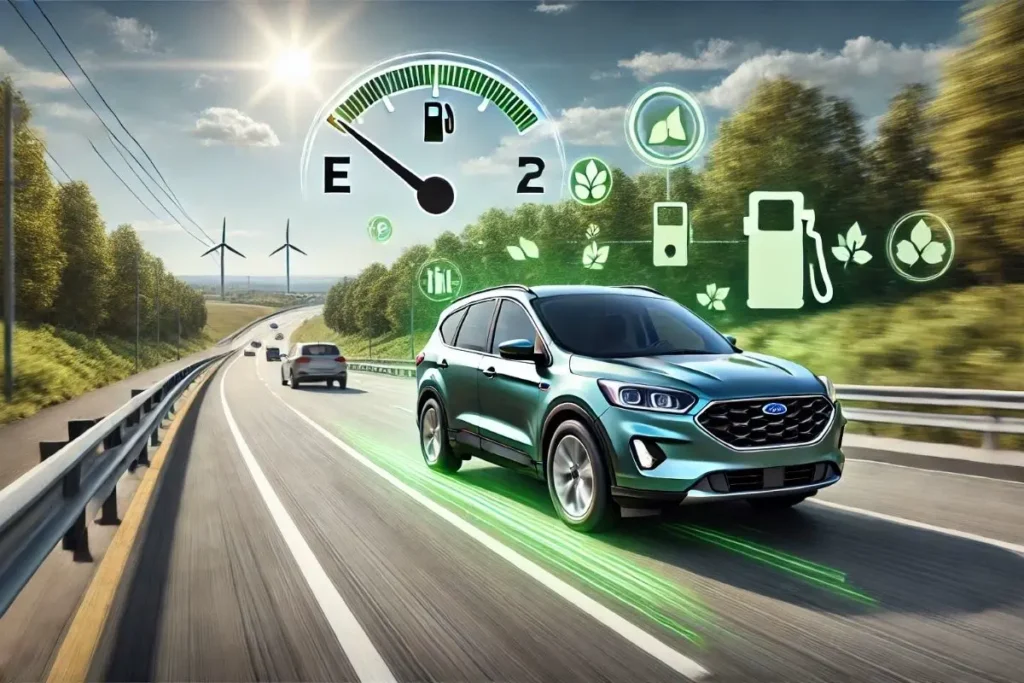
Ford Escape Hybrid
The Ford Escape Hybrid combines a gasoline engine with an electric motor, resulting in:
- City MPG: Up to 44 MPG
- Highway MPG: Around 37 MPG
- Combined MPG: Approximately 41 MPG
This makes the hybrid model ideal for city drivers who often encounter stop-and-go traffic, as the electric motor significantly reduces fuel consumption during these conditions.
Factors That Influence Ford Escape MPG
While the official Ford Escape MPG ratings are impressive, real-world fuel efficiency can vary depending on several factors. Here are some elements that can influence your actual MPG:
- Driving habits: Aggressive driving, such as sudden acceleration and hard braking, can decrease fuel efficiency.
- Road conditions: Hilly or uneven terrain can put more strain on the engine, reducing MPG.
- Load: Carrying heavy cargo or additional passengers may decrease the vehicle’s fuel efficiency.
- Weather: Cold weather can reduce MPG because the engine requires more fuel to warm up and maintain performance in low temperatures.

Real-World Performance of the Ford Escape MPG
When considering the Ford Escape MPG, it’s essential to look beyond the official numbers provided by manufacturers. Real-world driving conditions can significantly impact fuel efficiency, and for those looking to make the most out of their SUV’s fuel economy, understanding these factors can help optimize performance.
City Driving vs. Highway Driving
The Ford Escape performs differently in urban environments compared to highway conditions. The “city MPG” is typically lower because of frequent stops and starts, which require more fuel. However, on the highway, the Ford Escape MPG shines, allowing drivers to travel further on a single tank of fuel.
- City Driving: The Ford Escape averages about 27 MPG in the city for its 1.5L EcoBoost engine, while the Hybrid model can achieve up to 44 MPG, making it a top choice for urban commuters.
- Highway Driving: On long, smooth highways, the Ford Escape delivers impressive results, with the 1.5L EcoBoost engine reaching 33 MPG. For even better performance, the Hybrid model manages up to 37 MPG, making it highly efficient for those who travel longer distances.
How to Improve Your Ford Escape’s MPG
If you’re already driving a Ford Escape or planning to purchase one, you might wonder how to maximize fuel efficiency and achieve the best possible MPG. The following strategies will help you get the most out of every gallon of fuel.
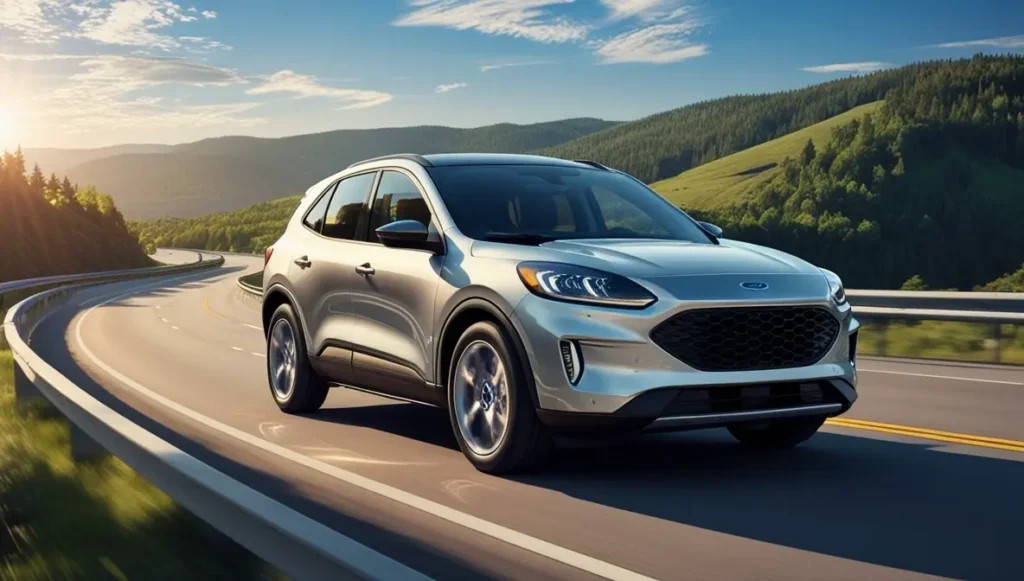
Regular Maintenance
One of the most effective ways to maintain or even improve your Ford Escape’s MPG is by keeping up with regular vehicle maintenance. Here’s what you can do:
- Check tire pressure: Properly inflated tires can reduce rolling resistance and improve fuel efficiency. Under-inflated tires can lower your MPG significantly.
- Engine tune-ups: Keeping your engine in top condition ensures it operates efficiently. Regular oil changes, spark plug replacements, and air filter cleaning can make a noticeable difference in fuel economy.
- Wheel alignment: Misaligned wheels can increase drag, forcing the engine to work harder and burn more fuel.
Driving Habits
Your driving style can have a significant impact on your vehicle’s fuel consumption. To get the best Ford Escape MPG, follow these tips:
- Drive smoothly: Quick acceleration and sudden braking lead to higher fuel consumption. A steady driving style can improve your MPG, especially in city traffic.
- Use cruise control: On long highway trips, using cruise control helps maintain a constant speed, which optimizes fuel use.
- Limit idling: Idling for long periods wastes fuel. If you’re stopped for more than a minute, consider turning off the engine to conserve gas.
Ford Escape MPG vs. Competitors
The compact SUV market is highly competitive, with many models offering similar features and performance. When comparing fuel efficiency, the Ford Escape MPG stands out, but how does it fare against other popular models?
Ford Escape vs. Honda CR-V
The Honda CR-V is a direct competitor to the Ford Escape, offering similar performance and comfort. However, in terms of MPG, the Ford Escape Hybrid takes the lead with its 44 MPG city rating, while the Honda CR-V Hybrid achieves around 40 MPG in the city.
Ford Escape vs. Toyota RAV4
Another well-known competitor is the Toyota RAV4, particularly its hybrid variant. The Toyota RAV4 Hybrid offers around 41 MPG combined, making it very close to the Ford Escape Hybrid, which delivers approximately 41 MPG combined as well. Both models are excellent for fuel-conscious buyers, but the Ford Escape offers more customization options with its various engine configurations.
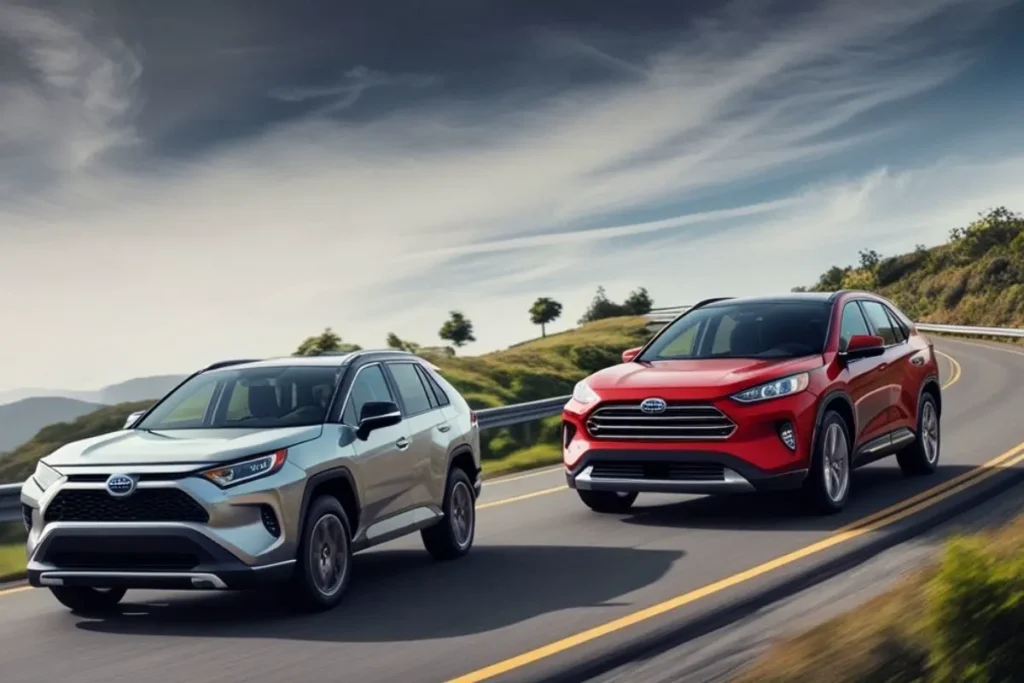
Choosing the Right Ford Escape for Your Needs
When it comes to fuel efficiency, it’s important to pick the Ford Escape model that best suits your driving habits and lifestyle. Depending on whether you drive primarily in the city, on the highway, or a mix of both, certain models will be more fuel-efficient for your needs.
Daily Commuters
For those who drive mainly in urban settings with lots of stop-and-go traffic, the Ford Escape Hybrid is an excellent option. Its electric motor significantly reduces fuel consumption in the city, providing a great balance between power and efficiency.
Long-Distance Drivers
If you frequently drive on highways, the 1.5L EcoBoost engine in the Ford Escape will deliver good fuel efficiency without sacrificing performance. The 33 MPG highway rating makes it a great choice for long-distance trips, offering both comfort and fuel savings.
The Future of Ford Escape MPG: Paving the Way for Fuel Efficiency
As technology evolves, so does the automotive industry’s ability to deliver more fuel-efficient vehicles. The Ford Escape MPG has consistently been one of the most efficient compact SUVs, and it’s set to become even better. With consumer demand growing for fuel-saving technologies and environmentally-friendly vehicles, Ford is making significant strides to enhance the Ford Escape MPG for future models.
The Shift Towards Electrification
Electrification is no longer just a trend in the automotive industry—it’s the future. Ford has already made significant advancements with the Ford Escape Hybrid and Plug-in Hybrid, but there is more to come. The company is investing in research to develop even more advanced electric and hybrid technologies, promising significant improvements in fuel economy.
- Longer electric range: Future hybrid and plug-in hybrid models of the Ford Escape are expected to offer longer electric-only driving ranges, further reducing fuel consumption. With enhancements in battery technology, the reliance on gasoline will diminish even more.
- Enhanced hybrid systems: Ford’s future hybrid systems will likely include more efficient engines, smarter energy management, and lighter materials, all of which will contribute to a superior MPG rating, making the Escape a top contender in its class.
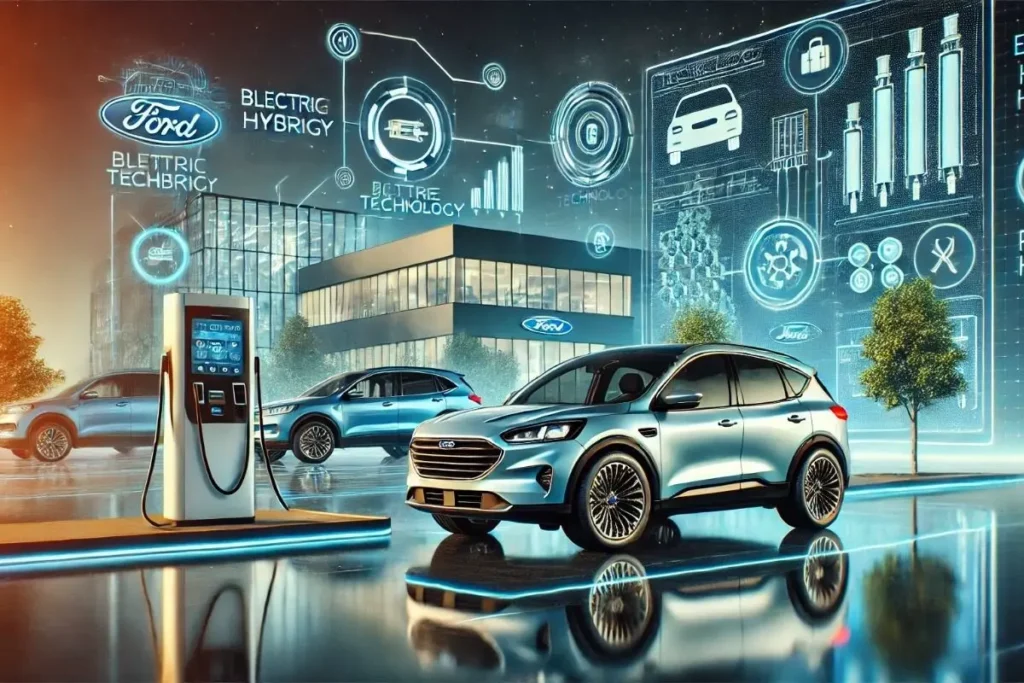
Fully Electric Ford Escape?
While the Ford Escape is currently available as a hybrid, a fully electric version may not be far off. Ford is committed to expanding its electric vehicle (EV) lineup, and a fully electric Ford Escape could soon become a reality. Such a model would offer drivers zero-emission commuting and further push Ford’s commitment to environmental sustainability.
- No more fuel stops: With an electric Ford Escape, drivers could say goodbye to gas stations entirely. As EV charging infrastructure improves, this could make electric versions of the Escape even more practical for long-distance drivers.
- Cost savings: Although electric vehicles have a higher initial cost, the savings from avoiding fuel expenses make them a great long-term investment. Plus, they offer a quieter, smoother driving experience compared to gas-powered vehicles.
The Environmental Impact of Ford Escape MPG Improvements
As fuel-efficient vehicles like the Ford Escape continue to improve, their environmental benefits become increasingly clear. The more fuel-efficient an SUV is, the fewer emissions it produces, helping to combat climate change. Ford’s focus on enhancing the MPG of the Escape is not just about saving money on fuel; it’s about reducing the vehicle’s carbon footprint.
Lower Emissions
For every gallon of gasoline burned, a vehicle emits about 20 pounds of carbon dioxide (CO2). By improving the Ford Escape MPG, Ford is helping to reduce these emissions, especially in urban environments where air pollution is a major concern.
- Hybrid benefits: The Ford Escape Hybrid produces fewer emissions than traditional gas-powered models, particularly in stop-and-go traffic where the electric motor can take over.
- City-friendly design: In urban areas, where air quality is often poor, the Ford Escape’s ability to drive on electric power for short distances is crucial for reducing smog and other pollutants.
Fuel Efficiency and Sustainability
Ford’s focus on sustainability goes beyond just improving the MPG of the Escape. The company is also exploring the use of eco-friendly materials and manufacturing processes to further reduce the environmental impact of their vehicles.
- Recycled materials: Ford is incorporating recycled and renewable materials into the production of the Ford Escape, reducing the vehicle’s overall carbon footprint.
- Energy-efficient factories: Ford’s commitment to sustainability extends to its production facilities, where energy-efficient manufacturing techniques are being implemented to lower emissions during the production process.
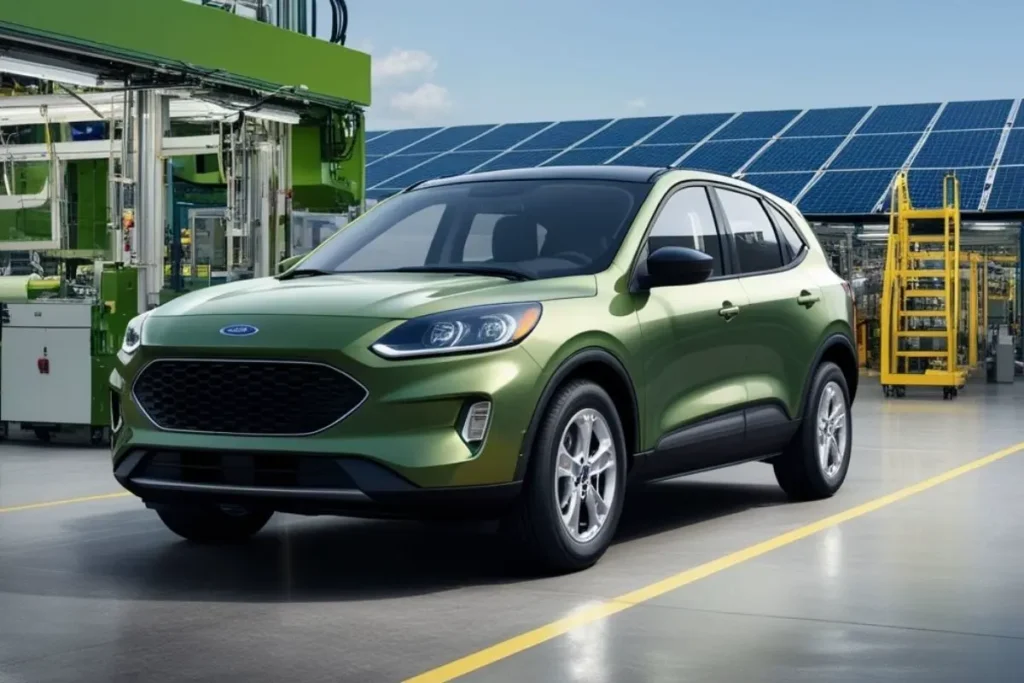
How Consumers Can Maximize Their Ford Escape MPG
While the Ford Escape is designed to be fuel-efficient, drivers can still play a significant role in maximizing their vehicle’s MPG. By adopting smart driving habits and staying on top of regular maintenance, owners can ensure they’re getting the most out of every gallon of fuel.
Smart Driving Techniques
The way you drive has a substantial impact on your vehicle’s fuel efficiency. Even the most fuel-efficient car can suffer from poor MPG if it’s driven inefficiently. Here are some tips to help you get the best Ford Escape MPG possible:
- Avoid rapid acceleration: Smooth, steady acceleration is key to conserving fuel. Quick starts and hard braking waste fuel and decrease your vehicle’s overall efficiency.
- Use cruise control: On the highway, cruise control can help maintain a steady speed, optimizing fuel consumption and reducing the chances of wasting fuel due to unnecessary acceleration.
- Limit idling: Idling for long periods is a major fuel waster. If you’re going to be parked for more than a minute, consider turning off your engine to save fuel.
Regular Maintenance for Maximum Efficiency
Keeping your vehicle well-maintained is another critical factor in achieving the best MPG. Regular maintenance not only extends the life of your vehicle but also ensures that it’s running at its most efficient.
- Tire pressure: Under-inflated tires can cause drag, making the engine work harder and reducing fuel efficiency. Regularly check your tire pressure and keep it at the recommended levels.
- Engine upkeep: Regular servicing keeps the engine operating smoothly, ensuring optimal fuel consumption. Tasks like changing the oil, replacing air filters, and maintaining spark plugs all help improve fuel economy.
- Alignment: Properly aligned wheels reduce rolling resistance, making it easier for the engine to move the vehicle without using excess fuel.
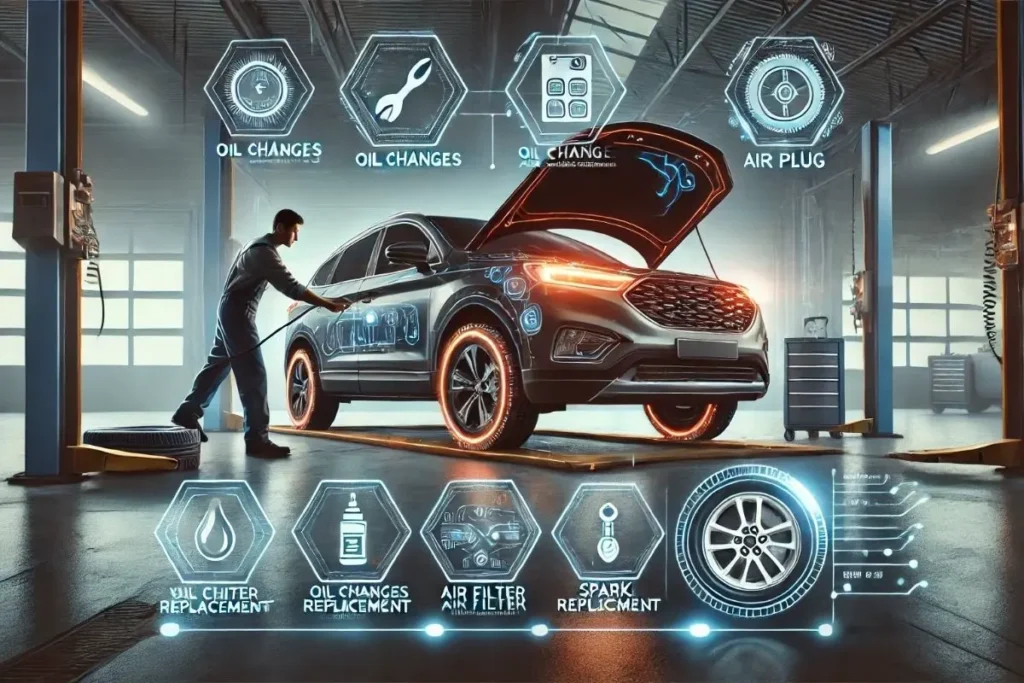
The Role of Technology in Enhancing Ford Escape MPG
Ford has integrated various advanced technologies to optimize the Ford Escape MPG, making it a standout in the compact SUV market. Features such as the start-stop system automatically turn off the engine when idling, reducing unnecessary fuel consumption. Additionally, regenerative braking captures energy that would otherwise be lost during braking and uses it to recharge the battery in hybrid models. These innovations, combined with continuous improvements in engine efficiency and battery technology, ensure that the Ford Escape continues to offer competitive MPG ratings while maintaining excellent performance and driving comfort.
Conclusion: The Future of Ford Escape MPG and the Road Ahead
The Ford Escape MPG has proven itself to be a top performer in the compact SUV market, especially in terms of fuel efficiency. As consumer demand for fuel-efficient and eco-friendly vehicles continues to grow, Ford is leading the way with advancements in hybrid technology, electrification, and sustainable practices.
Looking ahead, we can expect future versions of the Ford Escape to offer even better MPG, particularly with Ford’s ongoing investment in electric vehicles. Whether you choose the gas-powered EcoBoost engine, the Hybrid, or look forward to a fully electric version, the Ford Escape offers something for every type of driver.
For consumers who want to save at the pump and reduce their environmental footprint, the Ford Escape MPG makes it a strong contender in the crowded SUV market. As fuel-efficient technologies advance, this SUV will continue to be a standout choice for those seeking both performance and sustainability.
Looking to maintain your car’s efficiency beyond MPG? Explore our in-depth tips on car upkeep & customization to keep your vehicle performing at its best!


1 thought on “Ford Escape MPG: 12 Powerful Ways It Maximizes Efficiency and Performance”